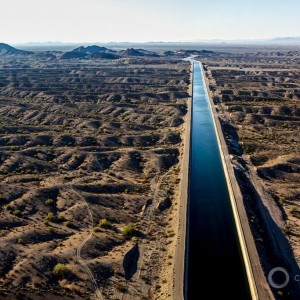Federal Water Tap, January 20: Trump Aims at Two Water Rules in Farm Bureau Speech
The Rundown
At a Farm Bureau meeting, President Trump highlighted his administration’s rollback of Obama-era clean water rules and asked the Army Corp to withdraw a proposed rule governing water supplies in its reservoirs. Legislation introduced in Congress aims to ban mining near a Minnesota wilderness area, prioritize coastal carbon sequestration, guard individual water rights, and map sinkholes in Florida. NOAA finds 2019 to be the planet’s second-hottest year on record. And lastly, the EPA holds a webinar on Legionella management.
“When it comes to the environment, I will always trust a farmer over a Washington bureaucrat or a left-wing extremist.” — President Donald Trump, speaking at the American Farm Bureau Federation annual meeting in Austin, Texas.
“Blue carbon ecosystems like those all along Florida’s coastlines serve a critical purpose providing habitats for fish and oysters, protecting our shorelines and improving water quality. But if we continue down the current path of mistreating our coastal ecosystems and poisoning our waterways, we are going to exponentially increase the damage and risks for future generations. Making sure we protect and restore these ecosystems is a must.” — Rep. Brian Mast (R-FL) in a statement about the Blue Carbon for Our Planet Act, which focuses on the carbon-storing potential of coastal wetlands, mangroves, kelp forests, and sea grasses.
By the Numbers
234,328: Acres of the Superior National Forest, in northern Minnesota, that would be withdrawn from mining claims, according to a bill introduced in the House.
News Briefs
Trump Targets Two Water Rules
Saying that he will “liberate” farmers from federal regulations, President Trump took aim at two water rules during a speech on Sunday at the American Farm Bureau Federation annual meeting.
One target is well-known: a proposal that will dramatically cut the number of waterways protected from pollution and degradation.
To hearty applause from attendees, Trump called the Obama administration’s Waters of the United States rule “one of the most ridiculous regulations of all.” The rule sought to clarify which waterways were protected by the Clean Water Act.
The Trump administration repealed that rule last September. Now, his agencies are on the verge of unveiling a replacement rule, one that will significantly cut protections for wetlands and streams that flow only part of the year. The final rule was sent in December to the Office of Management and Budget for internal review. It is expected to be released this month.
The rollback, once enacted and if it survives legal challenges, will also be a boon to mining companies, developers, and pipeline builders.
The EPA’s science advisory board, in a draft assessment released in December, called the Trump administration’s proposal “in conflict with established science.”
The other rule that Trump addressed is less famous.
Trump directed the Army Corps of Engineers to withdraw an Obama-era proposal to govern the use of water in reservoirs managed by the Corps. The proposal would give the Corps the authority to enter into contracts with municipal or industrial users to take water from its reservoirs.
Currently the Corps allows water to be taken from those reservoirs under informal and ad hoc rules, generally without any assessment of water availability or how the withdrawals impact other authorized uses of the reservoir.
More than a dozen western senators, both Republicans and Democrats, objected to the plan, saying that it took water-permitting authority away from the states.
Trump repeated that line in his speech on Sunday. “This authority rightfully belongs to the states, not the bureaucrats in Washington, D.C.,” Trump said.
“Water is the lifeblood of agriculture, and we will always protect your water supply,” Trump continued, echoing a battle cry that the administration has wielded in California as well.
Water Bills in Congress
Mining in Minnesota, sinkholes in Florida, carbon sequestration on the coasts, nuclear waste in the Great Lakes region, and water rights.
- Betty McCollum (D-MN) introduced a bill to prohibit mining on more than 234,000 acres of federally managed lands and waters in northern Minnesota that is adjacent to a wilderness area. The Obama administration, finding an unacceptable risk to the Boundary Waters wilderness from a proposed copper-nickel mine, withdrew those lands from mining claims, but the Trump administration reversed that decision.
- Florida, because of its karst geology, is terra not-so-firma, and Rep. Darren Soto (R-FL) wants to identify the not-so-firma. Soto introduced the Sinkhole Mapping Act, which directs the U.S. Geological Survey to establish a program to survey the state for the lands most susceptible to caving in and swallowing a house. The maps would be posted online and available to community planners.
- A dozen House representatives introduced a bipartisan bill to prioritize the carbon-holding capacity of coastal mangroves, sea grasses, wetlands, and kelp forests. The Blue Carbon for Our Planet Act asks NOAA to take a number of actions: inventory the carbon sequestration potential of coastal ecosystems, evaluate coastal ecosystem restoration and conservation, and collect existing coastal carbon data in a clearinghouse.
- Representatives from Great Lakes states introduced resolutions in the House and Senate asking that the government of Canada not allow nuclear waste to be permanently stored in the Great Lakes basin. A long-term waste dump is proposed for Ontario, along the shore of Lake Huron.
- Rep. Ralph Norman (R-SC) introduced the Property Rights Protection Act, which focuses on water rights and property values. The bill prohibits the transfer of an individual water right as condition of granting a federal permit. This issue flared in past years with ski resorts sited on national forest land. The bill also takes a hard line with the Endangered Species Act and private property. Designation of critical habitat is prohibited without the consent of the landowner unless the secretary finds a risk of extinction. If a critical habitat designation is made, the government must pay the landowners 150 percent the appraised value of the parcel.
Senate Approves Trade Agreement
The Senate, as did the House, approved a trade deal with Canada and Mexico that will replace NAFTA. The deal includes $300 million to construct wastewater treatment facilities on the U.S.-Mexico border.
President Trump is expected to sign the agreement.
Studies and Reports
2019 Climate Report
Last year was the second-hottest year on record, according to a National Ocean and Atmospheric Administration assessment.
Polar regions took the brunt of the heat, with Alaska registering its hottest year ever measured. Australia, now scorched by bushfires, had its hottest and driest year.
On the Radar
Legionella Webinar
The EPA will host a webinar on January 28 on Legionella management and treatment. Registration is free.
There will be two presentations. The first will look at the intersection between water source and Legionella growth in buildings. The second will examine the role of disinfectants in controlling the deadly bacteria.
In context: As Legionnaires’ Disease Cases Surge, Lawsuits Pile Up
Federal Water Tap is a weekly digest spotting trends in U.S. government water policy. To get more water news, follow Circle of Blue on Twitter and sign up for our newsletter.
Brett writes about agriculture, energy, infrastructure, and the politics and economics of water in the United States. He also writes the Federal Water Tap, Circle of Blue’s weekly digest of U.S. government water news. He is the winner of two Society of Environmental Journalists reporting awards, one of the top honors in American environmental journalism: first place for explanatory reporting for a series on septic system pollution in the United States(2016) and third place for beat reporting in a small market (2014). He received the Sierra Club’s Distinguished Service Award in 2018. Brett lives in Seattle, where he hikes the mountains and bakes pies. Contact Brett Walton





Leave a Reply
Want to join the discussion?Feel free to contribute!